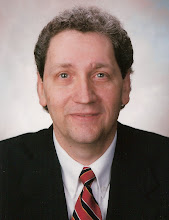When the flood came in Noah’s day, it rained 40 days and nights. Israel wandered in the desert and ate manna for 40 years. Moses fasted and prayed in Jehovah’s presence for 40 days and nights. Israel’s spies explored the promised land of Canaan for 40 days. David reigned over Israel for 40 years. Jonah gave the city of Nineveh 40 days to repent or be destroyed.
Jesus spent 40 days in the wilderness fasting, praying, and combating Satan. Do you get the impression that the number 40 is significant? I do. Every time God used the number it implied completeness.
If you want to pray like Jesus prayed, immerse yourself in his prayer life. Here's a list of passages describing his prayer life and giving you ideas on how to pray like the Master:
1. Psalm 2:7-9 – His prayer life predicted.
2. Matthew 5:43-44 – His teaching on prayer for enemies.
3. Matthew 6:5-8 – His teaching on sincere prayer.
4. Matthew 6:9-15 – His Model Prayer.
5. Matthew 7:7-12 – His teaching on prayer’s power.
6. Matthew 9:37-38 (Lk. 10:2) – His teaching on evangelistic prayer.
7. Matthew 11:25-26 (Lk. 10:2 1) – His prayer of praise.
8. Matthew 14:13, 23-27 (Mk. 6:46) – His all night prayer on the mountain.
9. Matthew 18:19-20 – His teaching on agreement in prayer.
10. Matthew 19:13 – He prays for the children.
11. Matthew 21:12-13 (Mk. 11:17) – He calls the temple a house of prayer.
12. Matthew 21:18-22 (Mk. 11:24-25) – His teaching on faith and prayer.
13. Matthew 24:20 (Mk. 13:18) – His call for prayer during crisis.
14. Matthew 26:26-27 (Mk. 14:22f & Lk. 22:171) – His prayers during the Lord’s Supper.
15. Matthew 26:36-44 (Mk. 14:32f & Lk. 22:391) – He prays in Gethsemane.
16. Matthew 27:46 (Mk. 15:34) – He prays on the cross.
17. Mark 1:35-39 – His habit of early prayer.
18. Mark 6:41 & 8:6-7 – His habit of thanksgiving.
19. Mark 9:28-29 – His teaching on prayer against demons.
20. Luke 3:21-22 – He prays at His baptism.
21. Luke 5:15-16 & 9:18 – His habit of secluded prayer.
22. Luke 6:12-13 – His all night prayer before choosing the apostles.
23. Luke 9:28-29 – His all night prayer at the transfiguration.
24. Luke 11:1-4 – His disciples ask for prayer training.
25. Luke 11:5-13 – His teaching on persistence in prayer.
26. Luke 18:1-8 – His parable on persistence in prayer.
27. Luke 18:9-14 – His teaching about authentic prayer.
28. Luke 22:31 – He prays for weak disciples.
29. Luke 23:34 – His prayer for His enemies.
30. Luke 23:46 – His prayer at His death.
31. John 11:41-42 – His prayers for Lazarus’ resurrection.
32. John 12:23-28 – His teaching on courage in prayer.
33. John 14:12-14 – His teaching on praying in His Name.
34. John 14:15-16 – His prayer for the Holy Spirit to come.
35. John 15:7-8 – His teaching on prayer’s power.
36. John 15:9-17 – His teaching on praying in His Name.
37. John 16:23-28 – His teaching on boldness in prayer.
38. John 17:1-26 – His prayer for all His disciples.
39. Hebrews 5:7-10 – The intensity of His prayer life.
40. Hebrews 7:25 – His eternal intercession.
"When Jesus prayed, the sea became a liquid sidewalk. Moses and Elijah reported for a mountain top conference. The dead shrugged off their tombs and hugged their relatives.
"When Jesus prayed, people knew something would happen!
"When Jesus prayed, his disciples rubbed goose bumps as they listened; the hair on their necks stood at attention. They listened with that uncomfortable reverence that surrounds an eternity moment (like a deathbed), that eerie feeling that the unseen is at your elbow, that the supernatural hovers just out of sight.
"When Jesus prayed, the supernatural became natural... almost normal. His prayers hit like nuclear warheads while his disciples played with firecrackers.
"When Jesus prayed, heaven opened... and listened."
-from Why God Waits For You To Pray by Keith Roberts, page 14.













